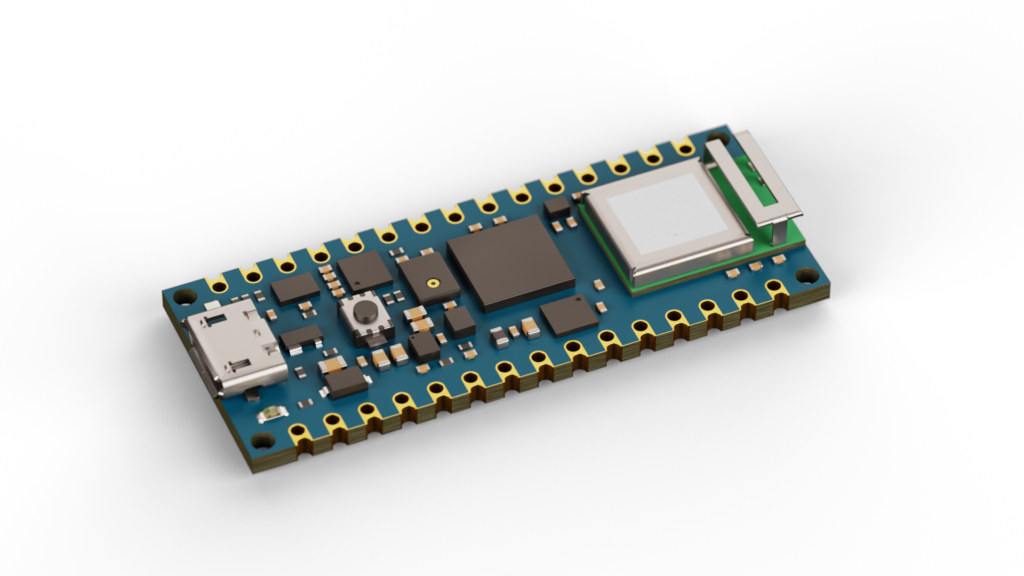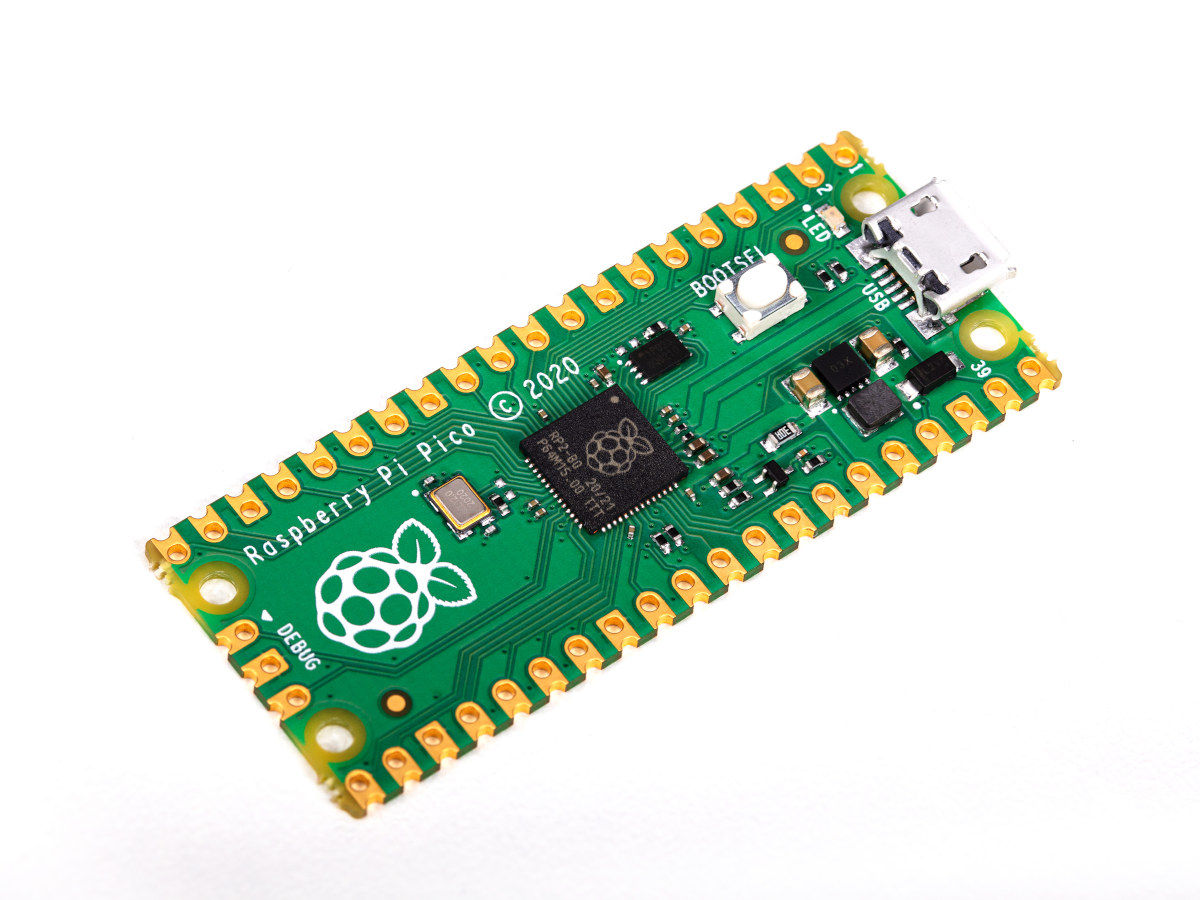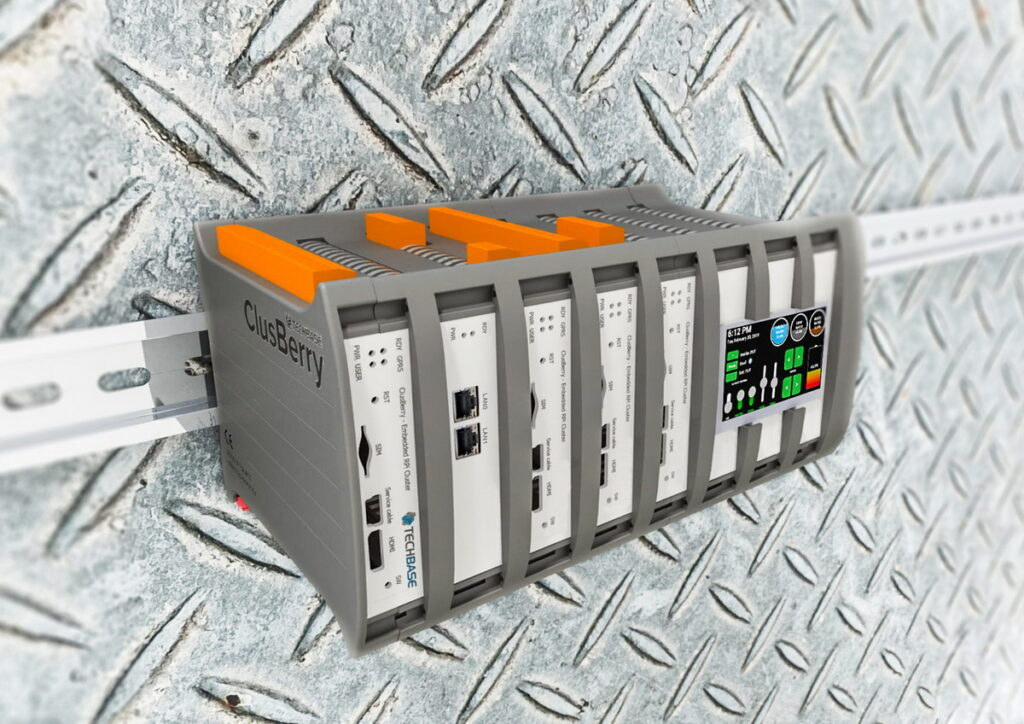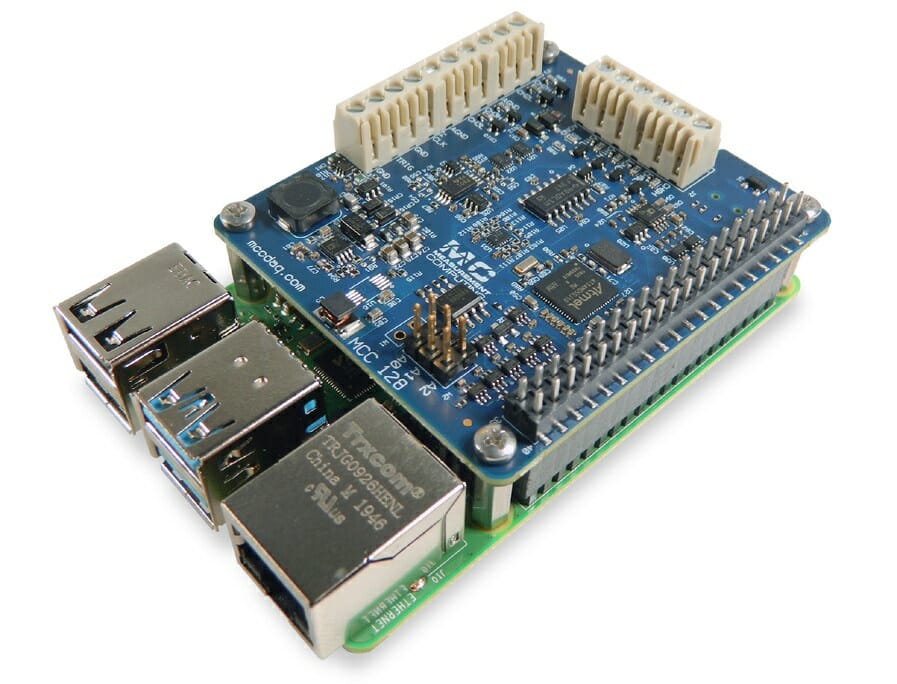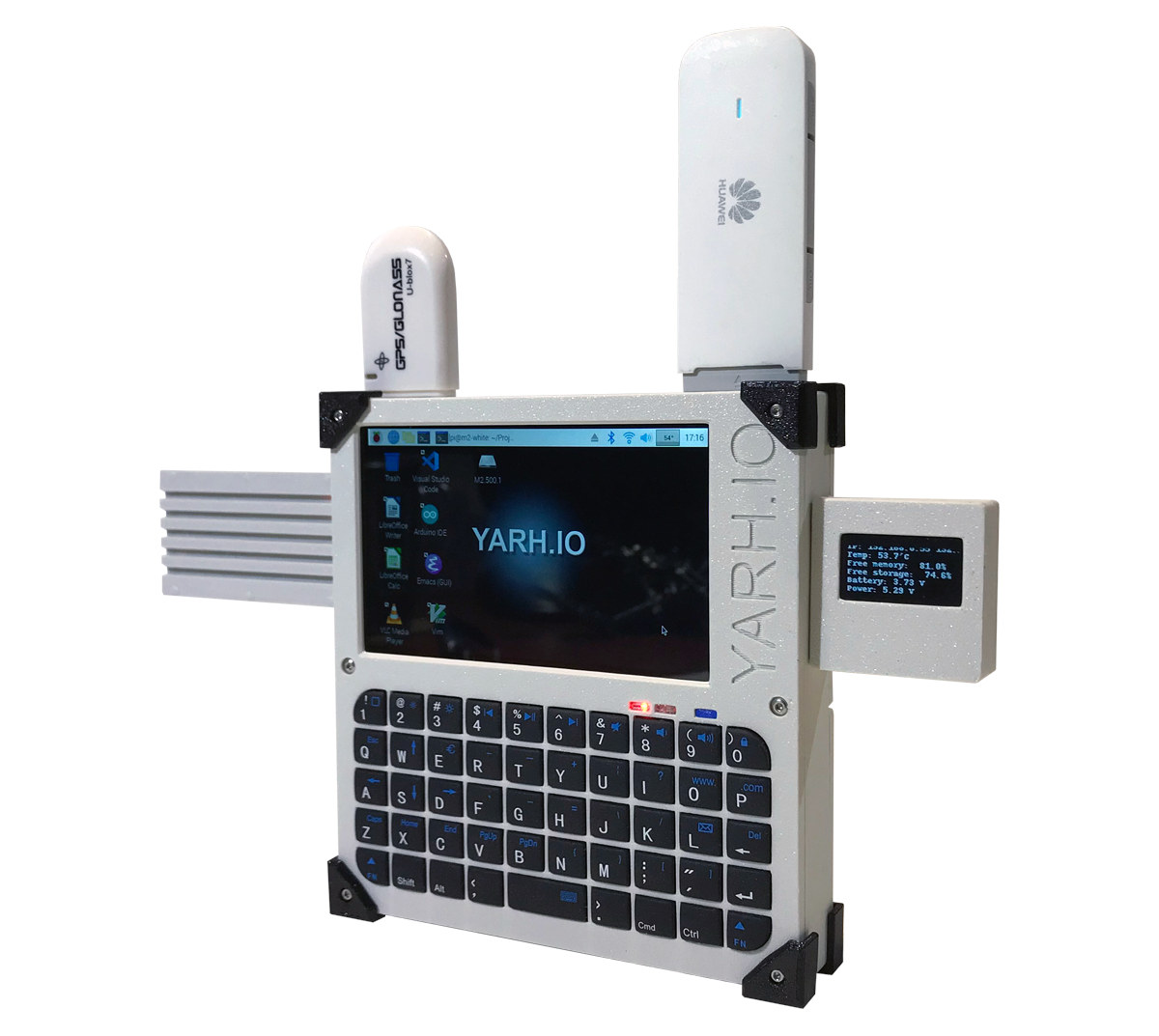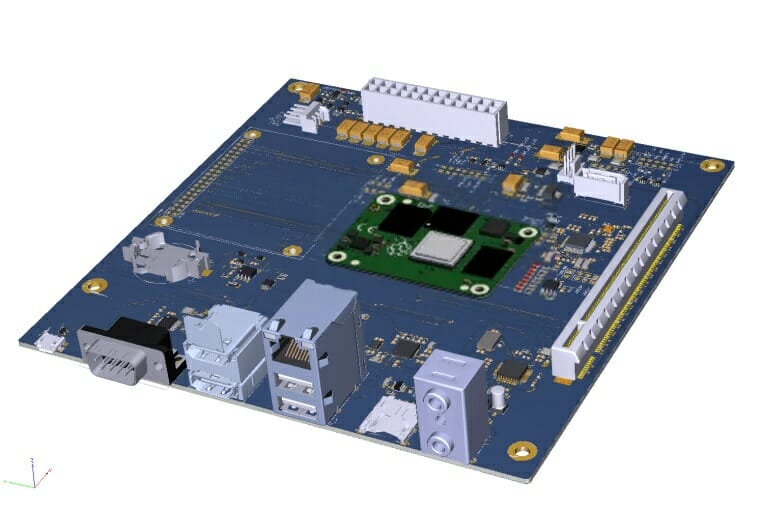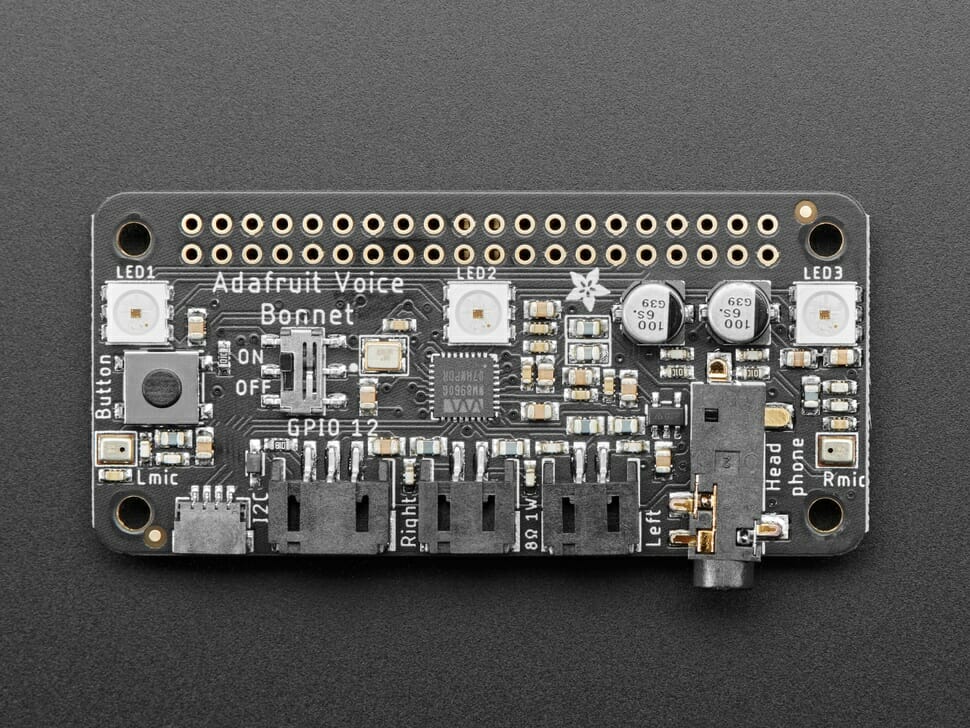I’ve just written about the launch of the Raspberry Pi Pico board and Raspberry Pi RP2040 MCU, which, as I explained in the announcement, could be used with third-party boards, but what I was not made aware during the embargo was that RP2040 boards were already being worked on, and other companies jointly announced their own custom Raspberry Pi Pico compatible board with Adafruit, Arduino, Pimoroni, and Sparkfun joining the party. Arduino Nano RP2040 Connect Board When I first wrote about Raspberry Pi Pico, I really saw it would be a competitor to Arduino boards, but instead Arduino and Raspberry Pi joined hands to design Arduino Nano RP2040 Connect with the board including 16MB external SPI flash, a u-blox NINA WiFi & Bluetooth module, an STMicro MEMS sensor with 9-axis IMU and microphone, and the ECC608 crypto chip. That obviously means Arduino Core will also support the new RP2040 MCU. […]
$4 Raspberry Pi Pico board features RP2040 dual-core Cortex-M0+ MCU
The Raspberry Pi Foundation introduced the Linux-capable Raspberry Pi board in 2012 to teach programming and computers. Since then, the company has introduced models with faster processors, more memory, faster interfaces, culminating with the launch of Raspberry Pi 4 in 2019. The board also comes with a 40-pin header to teach electronics, but relying on a Linux SBC to blink a LED, gather data from sensors, or controlling servos is a bit over the top. So the Raspberry Pi Foundation decided to create their own MCU board called Raspberry Pi Pico powered by RP2040 dual-core Cortex-M0+ microcontroller designed in-house by the foundation. Raspberry Pi RP2040 microcontroller Before we look at the board, let’s check out RP2040 specifications highlights: Core – Dual Cortex M0+ cores up to 133 MHz (48MHz default) Memory – 264 kB of embedded SRAM in 6 banks Peripherals 30 multifunction GPIO 6 dedicated IO for SPI Flash […]
ClusBerry 9500-CM4 – A Raspberry Pi CM4 cluster, industrial style
Raspberry Pi cluster boards / solutions pop-up from time to time. But so far, I think we’ve seen only one based on Raspberry Pi CM4 modules with the upcoming Turing Pi 2 mini-ITX cluster board supporting four of those. TECHBASE has now unveiled a different kind of Raspberry Pi CM4 cluster with ClusBerry 9500-CM4 integrating up to eight Raspberry Pi Computer Module 4 in a DIN-Rail housing for industrial applications. ClusBerry 9500-CM4 is designed to be customizable with a choice of Raspberry Pi CM4 based modules and I/O cards: Standard 9500-CM4 cluster module with Compute Module 4 and a selection of configuration that include: I/O Controller with DI, DO, AI, 1-Wire, RS-232/485 and CAN interfaces Communication Gateway with up to 2x Ethernet, serial ports, wireless connectivity: LTE-cat.M1, 4G, 5G, LoRa, ZigBee, Z-Wave, Wireless M-Bus AI Gateway with Coral Edge TPU via PCIe M.2, or up to 4x Coral Edge TPU […]
Voltage Measurement HAT for Raspberry Pi offers 16-bit analog inputs
MCC has launched the MCC 128 voltage measurement DAQ HAT for Raspberry Pi for data acquisition and data logging systems. It includes 8 analog inputs with 16-bit resolution for a range of -10V to +10 V at the data rate of 100 kS/s. This data rate can be increased by stacking up to 8 HATs for 64 channels of data which can produce a faster data rate up to 320 kS/s. The MCC 128 DAQ HAT is compatible with all Raspberry Pi models with the 40-pin GPIO header, excluding the original Pi 1 A or B with the 26-pin header. It is recommended to use the SPI interface for connecting LCD displays using the GPIO header. The configuration parameters of the board are stored in the EEPROM to allow automatic set up of GPIO pins to Raspberry Pi after the connection of the device. Key Features of MCC 128 DAQ […]
Stripped-down Raspberry Pi 3B+ SBC powers YARH.IO Micro 2 DIY handheld PC
We’ve already seen a few DIY Raspberry Pi-based handheld computers in the past with the likes of Zero Terminal V3 or hgTerm powered by a Raspberry Pi Zero and a stripped-down Raspberry Pi 3 board respectively. So why not another? YARH.IO Micro 2 DIY handheld PC is based on a Raspberry Pi 3B+ SBC stripped from its Ethernet port, whose double stack USB connectors have been replaced with single stack USB connectors. The DIY computer also adds off-the-shelf parts with a 4″ touch screen display and a Bluetooth keyboard without touchpad, and gets its power from a 3,500 mAh battery. YARH.IO Micro 2 key components and features: SBC – Stripped-down Raspberry Pi 3B+ SBC Display – HyperPixel 4.0 4-inch IPS display with 800×480 resolution, touchscreen from Pimoroni Keyboard – 49-key mini keyboard with Bluetooth 3.0 ($10) USB – USB straight and right-angle connectors for four USB ports around the device […]
Raspberry Pi 4 Mini-ITX carrier board. Meet Over:Board (Crowdfunding)
While the Raspberry Pi 4 SBC is popular for its small form factor, affordable hardware, and good software support, the Raspberry Pi Compute Module 4 offers more flexibility and allows makers and companies to design their own hardware matching their requirements, while still leveraging the existing software support. We’ve already seen a mini-ITX carrier board for the Raspberry Pi 4, namely the upcoming Turing Pi 2. However, the board has very specific use cases in mind since it’s a cluster board designed for four Raspberry Pi Compute Modules 4. But British engineer Ross Nicholls has designed Over:Board carrier board for Raspberry Pi Compute Module 4 for most traditional use cases, in essence, designing what amounts to a Raspberry Pi 4 mini-ITX motherboard with SATA, PCIe, etc. Over:Board specifications: Compatible SoM’s – Raspberry Pi CM4 or CM4Lite with Broadcom BCM2711 quad-core Cortex-A72 processor, up to 8GB RAM, up to 32GB storage. […]
Open-source VSCP IoT/M2M automation framework supports Arduino, Raspberry Pi
VSCP (Very Simple Control Protocol) is an open-source IoT framework that works on development boards like Arduino or Raspberry Pi, and lets you control IoT home automation tasks. The framework is highly scalable, has a very low footprint, and as such is specially designed for resource-limited devices. VSCP is an open-source standard protocol for m2m, IoT and other remote control and measurement applications. It enables simple, low-cost devices to be networked together with high-end computers and/or to work as an autonomous system, whatever the communication media is. The VSCP Protocol has two levels: Level 1 and Level 2. The protocol was primarily used in CAN networks (that is Level 1 for tiny microcontrollers) because CAN is cheap and reliable with high efficiency. However, VSCP can be used for faster transport layers such as TCP/IP, so here comes Level 2 which achieves better performance. We have already seen Souliss, an open-source […]
Adafruit Voice Bonnet is meant for DIY Raspberry Pi Smart Speakers
Adafruit Voice Bonnet features two speakers and two mics, that can be used as an audio-voice interface for Raspberry Pi SBC to create a DIY smart speaker or other audio product. The voice bonnet can work with any Raspberry Pi from Pi Zero up to Pi 4, with 40-pin 2 x 20 connector. Two speaker outputs of the voice bonnet have a power rating of 1 Watt. The voice bonnet contains 3.5 mm stereo outputs, headphone stereo, or line-out audio. The Adafruit voice bonnet has an on-board WM8960 low-power stereo codec that uses I2S digital audio for both input and output. The WM8960 codec has a dual analog input, it consists of a left mic and a right mic. The codec integrates a complete microphone interface and a stereo headphone driver. Adafruit says “For DIY speakers, solder any 1W+ speaker to one of these JST 2-PH cables. If you’d like […]


